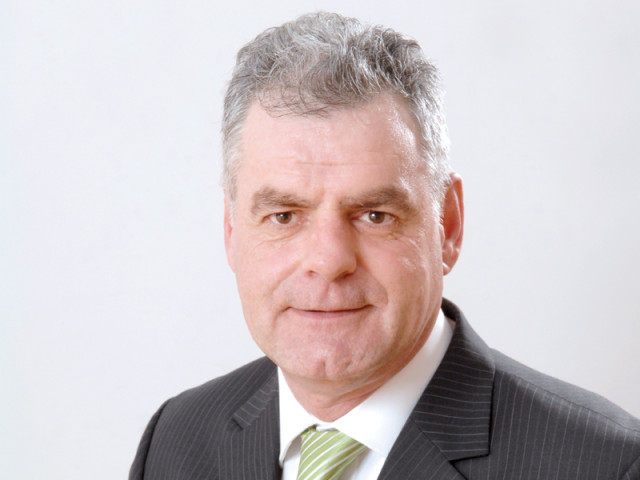Eliminating middlemen: After merger, Metro aims to deal directly with farmers
It will take a while before MCC fully capitalises on the deal as the merger was not formalised until June 25 this year

Taking up an underdeveloped and fragmented supply chain as the main challenge, Metro Cash and Carry (MCC), the wholesale giant, aims to bring down logistics and operational costs and improve distribution by creating synergies.
Removing middlemen – layers of agents and sub-agents – is a big challenge in the supply chain, according to David Boner, Managing Director of MCC, which recently formalised its merger with Makro-Habib Cash and Carry to create a new company, Metro-Habib Cash and Carry.
“I want to directly interact with farmers,” the 50-year-old MD said in an interview with The Express Tribune at MCC’s Stargate store.
The company believes an underdeveloped and fragmented supply chain infrastructure leads to inconsistent product availability. “Non-standardised packaging and bar-coding is another issue, which has our core focus so that we could provide the best traceable product to our customers,” Boner said.
Explaining the underdeveloped supply chain system, the British MD of Germany-based MCC said the scarcity of temperature-controlled transportation and warehousing facilities also leaves an impact on availability of products and creates quality issues.
The merger, however, seems to be resolving the issue for MCC, which caters to half a million customers in four major cities of Pakistan through its nine wholesale centres.
“One of the advantages of the merger is we have been able to improve our supply chain for fruits and vegetables,” Boner said. “We now have centralised distribution systems in Punjab and Sindh – one of the advantages of the merger.”
The merger, according to Boner, who has been in the industry for the last 26 years with 16 years of experience in Asian countries, was an easy decision with the two businesses having similar operational models.
Following that, MCC is able to combine resources of the two businesses to gain the financial strength to grow in a challenging environment. The wholesaler wants to create synergies targeted to generate value for its customers and suppliers alike.
It will, however, take a while before MCC fully capitalises on the deal as the merger was not formalised until June 25 this year.
The logistics cost has started to come down, Boner said. However, he added, presently less than 5% of their supplies are going through the centralised distribution system. “By the end of 2013, we expect this number to be 15% to 20%.”
While local and foreign retail stores are experiencing a significant growth in their sales, MCC will remain focused on wholesale customers.
“We run a unique business-to-business (B2B) concept targeted at professional customers, who account for 65% of the total customer base,” Boner said. “We will not compromise on our wholesale concept. Our competitiveness is in B2B and that will remain our strategy.”
“Our passion is to exactly meet the needs of our professional customers – hoteliers, restaurants, caterers, canteens, small and medium size retailers as well as service companies and businesses – also known as Horaca sector,” said Boner.
Talking about business growth, he pointed out the opportunity is immense as the combined business of MCC still represents less than 3% of the market share. There are a number of small distributors and individual operators around, he said.
However, MCC doesn’t have any immediate plans to enter growing markets – Multan, Sialkot and Gujranwala to name a few.
“The focus in the short term is on growing our merged businesses like-for-like,” Boner said. “Integration and remodeling of five Makro stores into Metro is our priority and this is also capital-sensitive.”
In future, further expansion – going to small cities – is also on the agenda, though the company has no concrete plans at the moment. Commenting on this, he said, it is not the question of market maturity but of time.
MCC has invested about €15 million on average in each wholesale centre, which is apart from investment in supply chain infrastructure.
Boner refused to reveal MCC’s revenue, saying sales met the projected targets of 2010 and 2011. Sales in 2011 grew more than 20%, he said, when compared with 2010. “Our sales in 2012, so far, beat that number and give a positive outlook.”
Published in The Express Tribune, September 19th, 2012.


















COMMENTS
Comments are moderated and generally will be posted if they are on-topic and not abusive.
For more information, please see our Comments FAQ